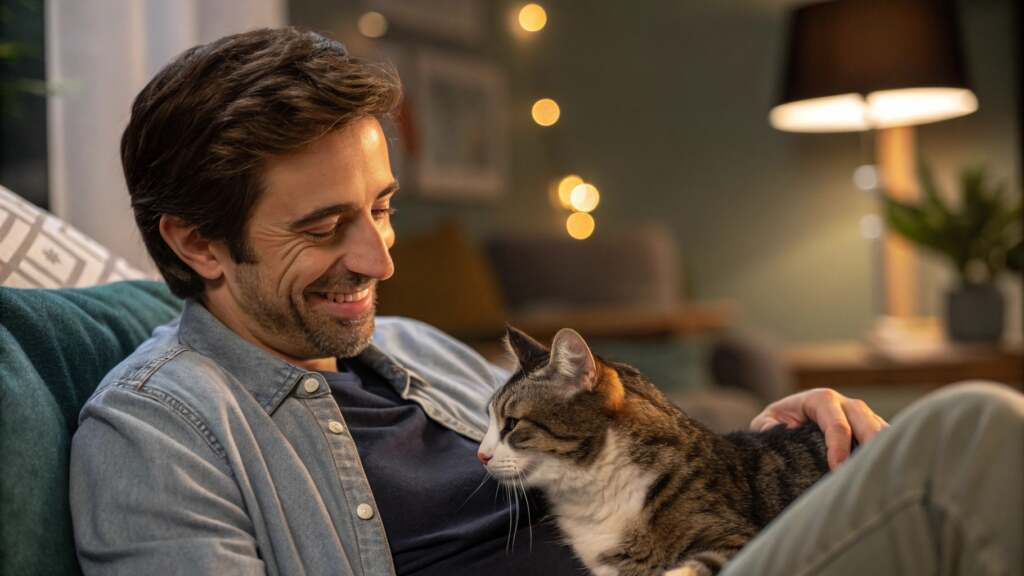Cats are masters of hiding pain and illness. In the wild, showing weakness made them vulnerable, and even today, our domestic cats still carry that instinct. As a loving cat owner, it’s important to spot the early signs that something isn’t right. Catching problems early can make a huge difference in treatment and recovery.
Here are 10 warning signs your cat might be sick — and what you should do if you notice them.
1. Changes in Appetite or Thirst
If your cat suddenly stops eating or drinking, or starts eating much more than usual, it could be a red flag.
Loss of appetite might signal dental problems, infections, kidney disease, or even cancer. Increased thirst could point to diabetes or kidney issues.
👉 What to Do:
Monitor their food and water intake closely. If it lasts more than a day or two, or if they’re drinking excessively, book a vet appointment immediately.
2. Weight Loss or Gain
Sudden, noticeable changes in your cat’s weight are serious.
Weight loss could suggest hyperthyroidism, diabetes, or cancer, while weight gain may be linked to obesity-related illnesses or fluid retention from heart disease.
👉 What to Do:
Weigh your cat regularly at home if possible. Seek veterinary advice if you notice unexplained weight changes.
3. Lethargy or Low Energy
Cats love their naps, but if your playful buddy suddenly seems uninterested in everything — even food, toys, or affection — it could mean something is wrong.
👉 What to Do:
Try to stimulate them with their favorite toy or treat. If they remain unusually inactive for more than 24 hours, consult your vet.
4. Changes in Grooming Habits
Cats are typically clean creatures. If you notice your cat grooming less, looking scruffy, or developing matted fur, it may be a sign of arthritis, obesity, dental pain, or other illnesses.
👉 What to Do:
Gently brush them and observe their reaction. Difficulty grooming themselves is a sign they need veterinary attention.
5. Bad Breath
Sure, no one’s expecting minty-fresh breath from a cat, but if your cat’s breath smells foul, it could be more than just “cat food breath.”
Dental disease, kidney disease, or diabetes can cause bad odors.
👉 What to Do:
Peek inside their mouth (if they’ll allow it). Look for red gums, drooling, or visible tartar buildup. A dental check-up might be necessary.
6. Vomiting or Diarrhea
Occasional hairballs or upset stomachs happen. But frequent vomiting, diarrhea, or even constipation can indicate parasites, infections, food allergies, or serious diseases like inflammatory bowel disease (IBD).
👉 What to Do:
Monitor the frequency. If vomiting or diarrhea continues for more than a day, or is accompanied by blood, call your vet.
7. Breathing Issue
Wheezing, coughing, labored breathing, or open-mouth breathing are all big warning signs. Breathing issues can indicate asthma, heart disease, or respiratory infections.
👉 What to Do:
Don’t wait. Breathing problems can escalate quickly and become emergencies. Get veterinary help immediately.
8. Behavioral Changes
If your sweet cat suddenly turns aggressive, hides all day, or acts differently than normal, it could signal physical pain or emotional distress.
👉 What to Do:
Try to create a calm environment and note when the behavior changes started. A vet can rule out underlying medical issues.
9. Changes in Litter Box Habits
Going outside the litter box, straining to urinate, blood in urine, or increased/decreased urination can be signs of urinary tract infections, kidney disease, or even feline lower urinary tract disease (FLUTD).
👉 What to Do:
Keep the litter box clean and monitor how often they use it. If you notice anything unusual, see a vet right away — some urinary issues can become fatal quickly.
10. Unusual Noises or Vocalization
If your cat starts yowling, crying, or meowing excessively — especially if it’s a change from their normal behavior — it might be a cry for help.
👉 What to Do:
Respond to your cat’s cries with gentle attention. If the vocalization continues or sounds distressed, seek medical advice.
Final Thoughts
Your cat depends on you to notice when something’s wrong. Small signs can be easy to overlook, but paying close attention can save their life.
Trust your instincts — if something feels “off,” it’s better to be safe and consult your vet.
Healthy cats are happy cats, and early action is the best way to ensure your furry friend stays by your side for many years to come.
Bonus Tip: Keep a Cat Health Journal 📔
Keep a simple notebook where you jot down any changes in your cat’s behavior, appetite, grooming habits, or litter box usage.
This can help your vet get a clearer picture if something does come up!

